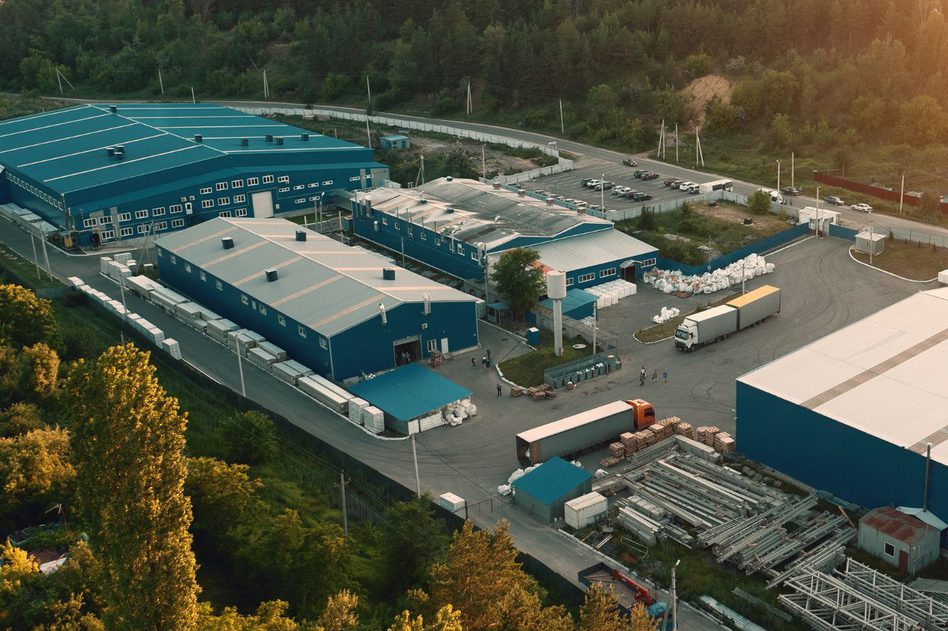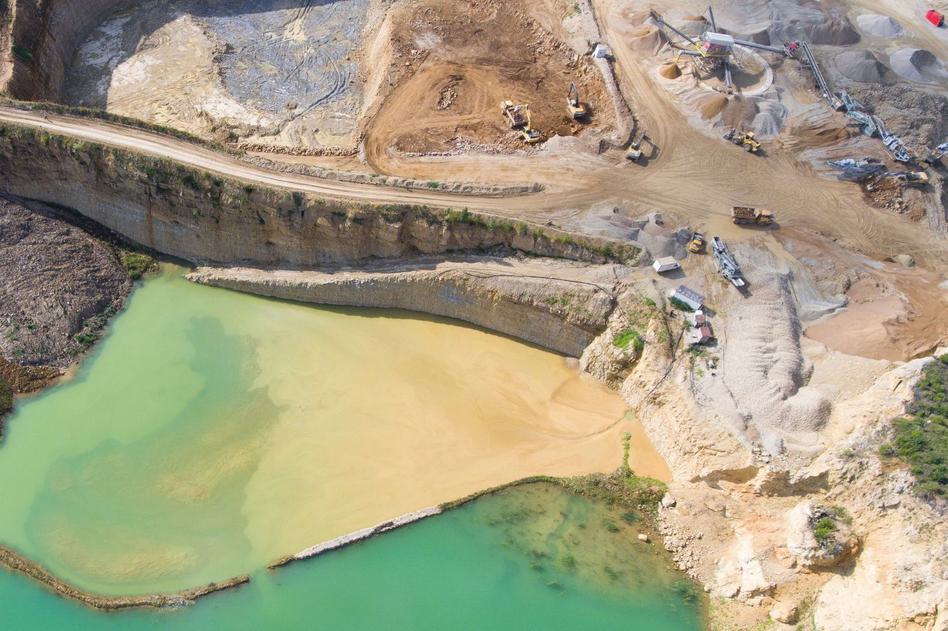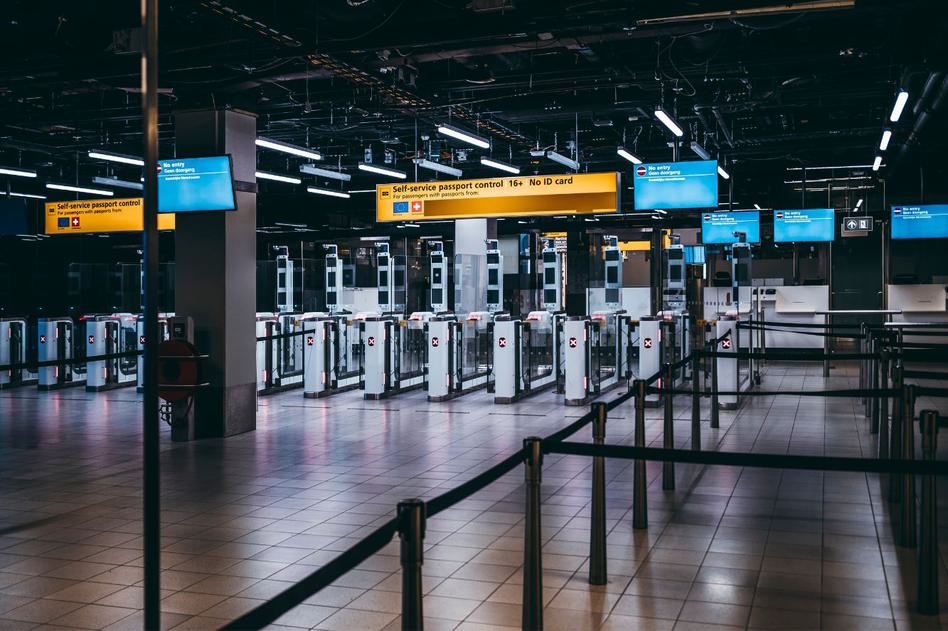Top Ten Business and Human Rights Issues in 2024
8 December 2023

International Human Rights Day 2023 marks 75 years of the Universal Declaration of Human Rights (UDHR), the international community’s foundational statement affirming the inherent dignity and equal rights of all people.
This moment is marked by multiple global crises, including horrific conflicts in Israel and Palestine, Ukraine, Sudan, and many other parts of the world, all of which threaten to fracture world order and undermine international standards intended to protect all people.
What roles should business play to help advance human rights in a period of such uncertainty?
In 1958, on the 10th anniversary of the UDHR, Eleanor Roosevelt spoke of the ‘small places, close to home’ where human rights matter. She included the factory, the farm, and the office among ‘the small places’ where all people seek equal justice, equal opportunity, and equal dignity without discrimination.
In a time of conflict, climate crisis, rapidly evolving technologies, and persistent inequalities, what are the ‘small places’ and new frontiers where responsible business will be critical? Where might progress falter if ‘business as usual’ continues? How can business leadership help renew a global commitment to human rights over the decades to come?
Each International Human Rights Day, IHRB releases our “Top 10 Business & Human Rights Issues” - an annual forecast of priority challenges and opportunities in the year ahead.
2024’s Top 10 list looks further into the future, and examines the places where business actions are likely to be critical in the decades to come. Some of these issues have been long-standing parts of the business and human rights agenda, while others are still emerging challenges, far beyond our ability to see clearly. All will require new forms of leadership and collective action in order to advance human rights in the years ahead.

Farm
Protecting agricultural workers and smallholders amidst rapid changes in food production and distribution.
Over 884 million people globally work primarily in agriculture, and around 3.83 billion live in households linked to agricultural food systems. The majority of farms in the world are family-owned, and smallholders account for at least a third of global food production.
Smallholders continue to face serious challenges, from low wages and deeply entrenched structural inequalities, to occupational risks and hazards, and limited ability to adapt to climate-related shocks. In coming decades, technological advances, evolving consumer preferences, and sustainability imperatives could drive agriculture and food production towards transformative changes. Incentives to shape sustainable and regenerative agriculture will be needed to achieve livable incomes for smallholders; higher environmental standards, biodiversity restoration, and strengthened climate resilience.
Sustainable food and agricultural systems will depend largely on protecting workers from increasing health risks and precarious work, as well as an insurance industry that protects farmers from job loss due to extreme weather events and rapid technological changes in the sector. A number of countries have passed laws restricting outdoor work when temperatures soar, and extensive guidance has been developed for businesses to tackle heat stress affecting workers. While some companies and industry associations are taking steps to create better conditions for agricultural workers, large agricultural business groups continue to lobby against enforceable workplace heat standards.
Heat stress is one of many issues that will affect a workforce still largely excluded from labour and social protection frameworks and worker representation structures. Given the breadth and scale of the agricultural sector, efforts to support farmers and workers transitioning to greener farming practices will require interventions based on local context and geography, farm type and output alongside protection of small-holder land tenure rights. The deployment of technology poses challenges as well, including the right to seeds as large corporations continue to patent genetic structures.
Over the coming decades, promoting and facilitating meaningful worker and community engagement will remain crucial to reforms underway and yet to come. This will be a significant challenge for a highly mobile and geographically dispersed sector that has historically struggled to achieve localised interventions and grievance mechanisms. Investing in education and training will be critical to equip agricultural workers with the skills needed for evolving roles and advancing technologies. Ultimately, collaborative approaches involving policymakers, industry leaders, financial institutions and workers themselves will be essential to ensure that the trade-offs and benefits of technological progress, agroecological practices, and food production transformations are shared equitably and sustainably.

Factory
Developing collective empowerment and new partnerships between workers and employers as technology reshapes the factory floor.
People around the world who work in factories face a range of challenges both as technology evolves and widespread violations of fundamental worker rights continue. Automation is viewed with apprehension by workers who fear losing jobs, despite new technologies having been a constant feature of manufacturing since the industrial revolution.
Factories increasingly rely on robotics, and the emergence of artificial intelligence is reviving concerns that the future of work will not be bright for many people, as factories become more autonomous, and highly skilled workers are needed to train objects and technologies. Forecasts point to many new opportunities for individuals with technical skills to manage ever more digitised and automated factory floors, but experts predict “the factory and its associated infrastructure will be levelling up rather than the workers.”
Responsible business leaders are investing more in training focused on skills needed for future factories, from data analytics to programming. Workers with skills to engage with and interpret data will be critical to future workplace success, but growth in human-machine factory interaction raises many human rights concerns, including surveillance, data privacy and treatment of workers. Providing opportunities for people from diverse socio-economic backgrounds to benefit from technological changes in the workplace will continue to be a priority. Companies will need clear policies and processes designed to ensure that technologies for improved factory performance serve as tools of empowerment, and do not cause or contribute to exploitation.
Even as technology remakes factories in many parts of the world, dangerous workplaces continue to be an all too common feature of the global economy. In industries such as garment manufacturing, where global supply chains and the rise of “fast fashion” have resulted in widespread violations of worker rights, particularly impacting women workers, efforts to advance the decent work agenda struggle, and need significantly stronger support.
A growing number of initiatives and organisations are joining forces to source products from companies where workers have ownership and voice in decision-making, not only in the factory but in wider community development and sustainable livelihoods. The human rights and business agenda must continue to prioritise making factories around the world places where workers are safe, earn a living wage, can gain new skills, have adequate time off, and are able to form and join unions to represent their interests.

Office
Responding to employee desires for greater flexibility and wellbeing in the workplace.
The shadow that the COVID19 pandemic cast on the global economy continues to destabilise workplaces. Even as the world has increasingly returned to a ‘new normal,’ many offices remain empty, and workers who are able to, are sometimes unwilling to return, preferring to remain at home and work remotely. Meanwhile, ‘gig workers’ are heavily relied on to deliver often mobile, flexible and on-demand services. This has raised fundamental questions about the nature of work, the future of workspace, and difficulties in creating teams, as well as safety at remote locations from where workers operate, and for workers who work from home -.
A number of previously hidden challenges have also come into focus, including safety for women who work from home, due to the rise in domestic violence in some cases, as well as women dropping out of the workforce. There are also significant questions about how companies can responsibly address impacts on the mental health of those working from home. Younger workers too have suffered as a result of not having access to training and mentorship from older workers, and missing out on skills including workplace team-building. These issues become more complex when considering the reality that only certain kinds of jobs can be done remotely - typically white-collar, professional jobs, and at clerical and managerial levels. Traditional blue collar jobs - in transport, agriculture, and many services, from cooking to personal care - continue to require proximity to customers, and do not benefit from the gains of working from home, creating tiered societies and increasing inequality.
In the years ahead, companies will need to scale up flexible or hybrid work policies while respecting the rights of employees, and taking into account their individual choice and agency, along with the needs of the organisation. New models will require greater worker participation with meaningful voting power over decisions that affect them individually and collectively, as well as other forms of organisations and business models, such as co-operative societies, and the B-Corp model - a movement that now includes nearly 8,000 companies operating on principles of sustainability and social and environmental commitments. The office will continue to evolve in the coming decades, requiring corporate policies to be continually reviewed to respect human rights in the workplace in all its forms.

Online
Balancing free expression with the urgent need to combat hate speech and disinformation.
What happens online has effects offline. Vulnerable communities, including minorities, ethnic groups, and women are increasingly abused, bullied and intimidated in the virtual sphere, causing many to withdraw. As a result, more bigoted viewpoints prevail. Such marginalisation is profoundly unjust, and distorts worldviews in an environment where the virtual space shapes real world developments.
Companies in this field have major responsibilities for several reasons. First, because states can’t be fair arbiters on whom societies rely to judge speech equitable. Second, because states aren’t able to play such a role, they delegate the task to service providers, such as businesses, which are not elected, nor supervised or regulated adequately. Too often, these businesses disregard international standards, creating a complicated universe where no common benchmarks are embraced. Such environments can promote disinformation - the deliberate attempt to distort worldview, a trend warned against by experts. These developments can have devastating consequences during armed conflict, as well as enable online harassment, which can silence many, including women. Other threats abound - the ability of deep fakes to manipulate reality as well as threats posed to human rights by artificial intelligence.
As UN High Commissioner for Human Rights, Volker Türk, noted recently, ‘attentive governance of AI risks,’ with a focus on human rights, is essential. Safety mechanisms, of which a ‘supreme court’ constituted by a corporation is but one response, are necessary but not adequate.
The European Union Artificial Intelligence Act, and the Biden administration’s Blueprint for an AI bill of rights in the United States are intended to set norms and rules to govern emerging forms of artificial intelligence. China too has created regulations. However, some approaches rely on companies to develop their own standards with limited oversight. Human rights experts have issued warnings and calls for human rights protection to be embedded within such initiatives. In the time ahead, civil society, technology experts, and human rights activists will need to remain vigilant to ensure that potential harms are known and noticed, and steps are taken to mitigate abuses, so that the promises technology holds for more informed and equitable societies can be realised.

Mines
Learning from past mistakes and maximising social benefits of the green rush for transition minerals.
Cleaner and greener technologies may show promise from an environmental perspective, and use of transition minerals may significantly reduce dependence on fossil fuels in the years ahead. But issues that plagued the extractive sector in the past - mistreatment of indigenous peoples, including, in particular, disregard of free prior informed consent, harassment of vulnerable communities, forced relocations, and abuses by security forces - remain crucial risks that just as easily apply to the emerging green economy.
An extractive venture mining lithium is not fundamentally different from one that mines copper. Each needs large numbers of workers, sometimes brought from other parts of the world; each must consult and negotiate with local communities, who may resent the presence of outsiders; each requires access to land and resources, and might drive up inflation and increase stress on the local environment, and each might insist on safety and security around operations, arousing suspicion and anger in communities given their painful past experiences with security forces. Tools that became necessary to deal with past perils - to reduce minerals entering the stream, whether diamonds or other conflict minerals, or regulations to stop abuses committed by security forces working in oil, mining and gas - should now apply to lithium, solar, and hydro-electrical power supply systems as well.
In the years ahead, new large-scale infrastructure such as building irrigation systems or hydro power will require land acquisition from small farmers who may be suspicious and unwilling to move. Setting up solar farms or windmills will also need access to land. Such ventures may require access to remote areas, and the impacts on communities will need to be taken into account. Constructive and meaningful consultation and dialogue with affected communities will be essential. Resources developed to tackle past issues, by organisations including the Danish Institute for Human Rights and International Alert, as well as gender-based tools, and other civil society guidance, will all be critically important to companies of today and tomorrow. Disregarding the lessons of the past in pursuit of a ‘green agenda’ will harm the environment as well as people, and in fact risks slowing progress to net-zero. Other crucial protocols, including anti-corruption initiatives and guidance for consultation and consent will continue to matter and will need ongoing attention as the world economy transitions.

Oceans
Ensuring that rights protections and shared prosperity are at the heart of a sustainable blue economy.
Covering over 70% of the Earth's surface, oceans provide food, medicines, renewable energy, and natural resources to billions of people. UNEP highlights five reasons why a clean and healthy ocean is important for realising human rights obligations. The ocean is humanity’s life-support system: it provides jobs, livelihoods, food; it sequesters carbon and regulates temperatures; it is home to critical global biodiversity and; it represents deep cultural significance for countless communities, including indigenous peoples.
Human activity is profoundly compromising the health of the ocean through pollution, overfishing, and habitat destruction, while global warming is causing sea levels and temperatures to rise dangerously. Industrial activities in the world’s oceans, commonly referred to as the ‘blue economy’, range from shipping to wind energy, fishing to aquaculture, deep-sea mining to tourism. If not managed responsibly, blue economy industries can have seriously harmful impacts on coastal communities and ocean industry workers. From shipyard and dock workers to seafarers, from commercial to artisanal fishers, to coastal indigenous communities whose land or fishing waters are threatened or grabbed - the human rights impacts of business activities are profound, but the opportunities for shared prosperity are vast.
The Ocean and Human Rights Platform highlights the importance of ongoing consultations, representation and empowerment of people working in and impacted by ocean industries around current and future use of oceans. It also stresses the need for all ocean actors, both private and public, to address social and human rights issues and ensure that ocean-based industries fulfil their human rights responsibilities towards those impacted, including local communities and workers in direct operations and in value chains. Ocean human rights defenders face intimidation, harassment and often criminalisation of their work. Responsible companies should seek dialogue as part of robust community engagement, and explore opportunities for building community equity and shared prosperity in the blue economy.
In this Ocean Decade, the High-Level Ocean Panel is calling for urgent action by companies, investors and governments to put healthy oceans at the heart of decision-making. In the decades to come, more efforts will be needed to ensure sustainable ocean production and equitable prosperity for all life that is reliant on oceans.

Space
Establishing standards and accountability for emerging industries working beyond Earth’s atmosphere.
The commercial development of space is raising multiple challenges for governments, companies, the scientific community and other actors around the world. Impacts linked to the sector will likely be of even greater urgency in the decades ahead. Space should be viewed by all as a shared resource, yet recent years have witnessed serious vulnerabilities and significant threats to international cooperation in this domain, even as the responsibilities of the space industry have come into sharper focus.
Rapid space development has prompted industry debates and analysis on security and sustainability related questions, but human rights principles have not featured in discussions to date. One area of concern involves threats linked to humanity’s accelerating reliance on satellites in near Earth orbit for communication, navigation, weather forecasting and other purposes. Expansion of the industry poses safety and security risks not only to those working in orbit, such as on the International Space Station, but also to people on the ground if satellite technologies are not responsibly deployed and maintained throughout their life cycles. The dramatic increase in space debris and potential for collisions, as well as risks linked to future projections for new space activity are being likened by experts to “an interstate highway, at rush hour in a snowstorm with everyone driving much too fast.” These developments, alongside questions on space exploration and tourism as well as proposals for extraterrestrial mining, all point to the need for greater transparency, international guidelines and legal frameworks to foster trust and accountability.
More than six decades since the creation of the UN Committee on the Peaceful Uses of Outer Space, international governance continues to lag behind the speed of changes in the sector. The 2024 UN Summit of the Future will discuss the need for new agreements to prevent an arms race in space, as well as issues including space traffic management and debris removal. Clarifying the scope of due diligence in private sector activities in space will be critical to success.
With the space economy’s estimated value currently at nearly half a trillion dollars and annual growth at 9%, the world faces a critical moment. The years ahead will require bold initiatives to develop new rules where necessary to shape a responsible, rights-respecting space sector. Industry leaders throughout the space ecosystem have an important role to play in setting the course for an inclusive and sustainable future beyond Earth’s gravity.

Cities
Encouraging smart, green, inclusive, and equitable infrastructure.
The world is urbanising at a rapid pace. When the Universal Declaration of Human Rights was adopted, about 30% of the world’s population was urban; today, the figure is closer to 55% and by 2050, it is set to rise to 68%. Cities in Asia and Africa have populations larger than many countries, causing severe stress on infrastructure where business action is critical - from healthcare to transport, sanitation, and education - all with significant social and environmental implications.
In the years ahead, cities will play a critical role in realising the rights of individuals and local communities while protecting the natural environment. International recognition by UN member states in 2022 of the human right to a clean, healthy and sustainable environment has focused new attention on the responsibilities of all actors, including city officials and companies, to protect people from harms linked to environmental related causes.
Human rights challenges for cities are playing out in many areas such as access to adequate and affordable housing. With more people moving to cities, areas that are already congested will see property prices rise, and the role played by speculative investors, and real estate financiers, will need to face greater scrutiny. Volatility in real estate prices, and providing finance on terms that turn predatory can impoverish those who have borrowed money without adequate understanding of complex financial literacy, repeating the crisis of 2008 globally.
How people move in cities has also taken on added importance as the transport sector seeks to adapt in ways that address climate concerns but may not take into account impacts on the most vulnerable. In the years ahead, more cities will invest in technologies to make them ‘smart,’ including programmes designed to streamline services to benefit residents. But even well-intended smart city initiatives may cause harm, such as vital services being denied to migrants, internal and external, as well as for those who are vulnerable or marginalised in other ways.
Over the coming years, local authorities, companies, and other stakeholders will need to do their part to ensure equal enjoyment of rights and opportunities through urban development and infrastructure design that incorporates non-discrimination perspectives. Reliance on technology-based solutions, including in planning rapid transport, parking and traffic flows, as well as locations for hospitals, playgrounds, or ubiquitous cameras to reduce crime all pose serious human rights risks that business sectors from construction to technology will need to address in order to be responsible actors in urban environments. Doing so in ways that respect rights and account for limits posed by environmental constraints will remain a challenge.

Borders
Building on the benefits of migration for all countries by protecting migrant worker rights.
Armed conflicts, natural disasters, economic stress, poverty and inequality, and more recently, climate change, have all contributed to an enormous increase in the number of people on the move.
Population demographics are affecting these trends, with lower fertility and ageing populations in the global North, and younger populations in the South. Acute shortages of workers in key sectors are dramatically impacting businesses and the tax base of many countries, and migrant workers are eager and willing to fill the gaps. In the years ahead, previous understandings of refugees seeking sanctuary from conflict or harm will need to be redefined, to include people seeking a better and economically secure future as well as those facing unlivable conditions due to climate change. According to the UN High Commissioner for Refugees, the number of climate refugees may rise to 1.2 billion by 2050.
Rapid demographic change can influence social cohesion, which fuels xenophobia and the rise of divisive politics. The issue of migration will continue to be difficult for businesses to navigate, but will nevertheless be critical for economic and social stability. As the Dhaka Principles for Migration With Dignity affirm, all businesses have responsibilities to ensure migrant workers receive equal treatment without discrimination, and protection under employment laws.
As the climate crisis creates a new category of refugees not currently captured under legal definitions, innovative legal strategies will become necessary. The European Parliament has explored the issue. The Gulf states, now reliant on migrant workers, may see an exodus on an unparalleled scale if the climate crisis worsens, as people - citizens and migrant workers - leave the region. The influx will naturally create more political tensions and scapegoating of refugees and immigrants, posing a challenge for businesses reliant on skilled labour.
Companies will need to be standard-bearers in shifting divisive debates on migration to more principled and productive pathways forward. Studies show that migrants are not a burden to an economy, but greatly help host countries prosper. Whether documented or not, migrants pay taxes in host countries, contributing to economic success. Remittances that migrants send to their home countries help families and increase home countries’ revenues. Migration makes societies more diverse, adding to the cultural mix, and does not lead to increase in crime. Redoubled advocacy efforts will be critical in the years ahead to demonstrate how well-designed migration policies can increase prosperity everywhere.

Natural World
Creating business strategies to halt and reverse nature loss and associated human rights impacts.
Nature around the world is in dangerous decline from rising temperatures, warming seas, floods and wildfires, drought and pollution, and biodiversity collapse – nature on land, sea and air is under existential threat as never before. Two million species are threatened with extinction, soils are turning infertile, and water sources are drying up. According to the World Health Organization (WHO), 24% of all global deaths, roughly 13.7 million deaths a year, are linked to the environment due to risks such as air or water pollution and chemical exposure. The speed and scale of biodiversity loss and ecosystem degradation is the highest in human history.
According to various estimates, for example S+P Global, 85% of the world's largest companies have a significant dependency on nature, indicating the critical importance of greater transparency around both nature-related risks and opportunities. Contribution to the restoration of soil health, aquifers, forests, farmland and ocean habitats must be at the heart of sustainable business for its own future, its suppliers, customers and society at large.
The International Union for Conservation of Nature (IUCN) defines Nature-based Solutions (NbS) as the work to ‘leverage nature and the power of healthy ecosystems to protect people, optimise infrastructure and safeguard a stable and biodiverse future.’
In addition to representing direct income sources for communities, NbS can offer economically viable alternatives that avoid damage caused by the destruction of ecosystems, for example through erosion, flood or wildfire prevention. However, despite the growth over recent years in green finance, the World Resources Institute (WRI) reports that there is still a critical lack of financing to allow NbS to transform economies to meet Paris climate targets, improve global food security, and reverse the decline in biodiversity.
In the decades ahead, it will be critical to ensure that companies are held accountable by governments, investors, consumers and civil society for their roles, direct or indirect, in environmental destruction – deforestation, water, soil and air pollution, habitat destruction and biodiversity loss. That must include associated human rights impacts in terms of loss of sustainable livelihoods, illegal land grab of indigenous land, depletion or destruction of communities’ natural resources and capital. Stronger regulation, mandatory due diligence, investor and consumer pressure and market recognition of bold leadership in nature-responsible policies and practices are all part of the landscape required for a sustainable future for a healthy planet and humanity.



